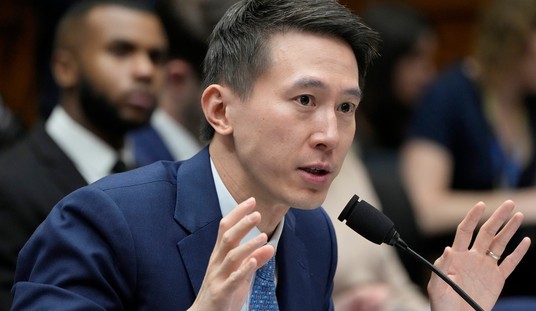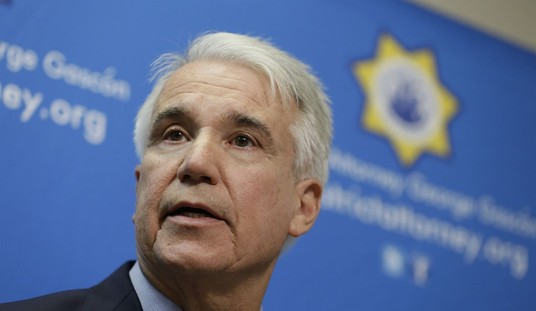It sounds as if things are starting to get pretty testy there.
French unions dig in for pension battle with Macron: Trade unionists plan to paralyse public transport, shut down schools, set up picket lines and march through cities on Thursday over President Emmanuel Macron's pension reform. https://t.co/Baovv89uSD
— Alicia Smith (@Alicia_Smith19) January 18, 2023
Not only are the unions going to protest pension reform in the streets on the 19th, but they’re also talking about taking their displeasure to members of the French government and “billionaires” in a very up and personal fashion.
France’s hardline CGT union has threatened to cut off electricity supplies to lawmakers and billionaires before a nationwide strike on Thursday, in an increasingly acrimonious showdown over the government’s plan to raise the retirement age.
…”I suggest they also go see the nice properties, the nice castles of billionaires,” Philippe Martinez, leader of the CGT, France’s second-largest trade union, told France 2 television on Wednesday.
“It would be good if we cut off their electricity so that they can put themselves, for a few days, in the shoes of … French people who can’t afford to pay their bill.”
In recent days, Sebastien Menesplier, of the hardline CGT’s energy and mine branch, has also threatened electricity cuts targeting the offices of MPs, local media quoted him as saying.
France's hardline CGT union has threatened to cut off electricity supplies to lawmakers & billionaires before a nationwide strike on Thursday, in an increasingly acrimonious showdown over the government's plan to raise the retirement age.https://t.co/2d9g7O7o1e
— Lucy Keaveney (@Luighseach) January 18, 2023
As one could imagine, the government isn’t endorsing the domestic terrorism route.
…Government spokesman Olivier Veran said threats to cut electricity were “unacceptable.”
Without the threats from hardliners, Thursday is shaping up to be the beginning of a huge test of strength for all involved. Pension reform has been on the table for decades in France, as the French system is one of the most generous, ergo also one of the costliest in Europe. It’s also really complicated, as I’ve spent the better part of an hour finding out. The “raising the retirement age to 65 from 62” part of the protest doesn’t make a lot of sense to an American trying to make heads or tails of the plan as it sits now (at least not to me, being far from a financial whiz kid).
The way France does it boils down to a 3 tiered system: the state pension, compulsory supplementary pension, and voluntary private pensions. If a worker wants to boost the eventual pension they receive, apparently they can contribute to all three. Currently, they also have different retirement ages – a circumstance President Emmanuel Macron was also intending to change as part of his 2019 reforms (The link also has a terrific explanation of French benefits.).
…Currently, private sector and public sector pension schemes in France have different retirement ages and benefits.
Macron’s government plans to move instead to a universal pensions system, bringing into alignment the current multiple schemes that form a somewhat complex system. The next step after this will be to gradually raise the minimum retirement age.
Retweaking the pension system had to be put aside due to COVID/pandemic and dealing with the associated impacts of those took precedence.
But, at the beginning of this year, Macron announced that he was going to revisit the issue.
Some people were skeptical from the get-go.
Emmanuel Macron unveils his pension reforms
He wants the French to work longer. Good luck with that…The centrepiece is a raising of the legal minimum retirement age from 62 to 64, by 2030. This measure is deeply unpopular with the French, but in line with Mr Macron’s campaign promise ahead of his re-election in April 2022. Ms Borne’s package includes an increase of €100 ($107) a month to €1,200 for the minimum state pension, which is paid to those who have made the required contributions over a lifetime. The prime minister made other concessions designed to win political support, including extra pension credits for those who have physically demanding jobs or began to work when very young.
France’s new pension rules are at once bold, overdue and less radical than once planned. Bold, because the decision to go ahead at all comes in the middle of a cost-of-living squeeze, as part of the fallout from Russia’s invasion of Ukraine. Thanks to generous French state subsidies and caps on price increases, the country’s inflation rate, at 6.7%, is one of the lowest in the euro zone, and fell in December. But the French still feel the pinch in their pockets, and this will get worse. This year the government is allowing energy bills for households to rise by 15%, up from 0-4% in 2022. Corporate bills are soaring. Small businesses are under particular stress.
The skepticism is well deserved. It’s not like you can find hordes of examples where Frenchmen proclaim they are into working for as long as someone will let them. Most are the exact opposite.
The culture that is French: a unionist from France's largest labor union, the CGT, is demanding that the retirement age be lowered to 50. On top of that, he calls for a 2000 euro raise for all workers. https://t.co/wbGF2jEzyo
— Krzysztof Tyszka-Drozdowski (@ktdrozdowski) January 18, 2023
So here they are on the brink of a test of wills between Macron and the unions – who have seen a diminishment of their once near-invincible power to paralyze the country – and the citizen who needs to get to work or the doctor or store on Thursday.
“Opinion polls show a vast majority of French oppose the planned reform, which would see the retirement age pushed from 62 to 64….Unions have called workers to massively walk out of their job on Jan. 19 and take to the streets across France.” https://t.co/YeggjUW2p2
— Petty Is Praxis (@rtyson82) January 17, 2023
It’s going to affect every section of industry should the unions have the power and coodination to pull it off.
More French refinery strikes:
"A 24hr strike planned for Jan. 19 is set to see deliveries of refined fuels curtailed .. union officials representing workers at both companies said. There’s also set to be a halt on imports of crude oil to their facilities"https://t.co/imhCdta4v0
— Rory Johnston (@Rory_Johnston) January 16, 2023
There are private unions who are saying that, while the public sector unions all seem ready to walk, the general consensus among their members is not as disposed towards striking. Questions remain about the unions’ power to organize a prolonged strike on a massive scale, period. Fiery rhetoric aside, Macron has bested them before.
…However the unions’ more recent record is less good – two months of strikes in 2019/20 did not succeed in stopping Emmanuel Macron’s first pension reform, while the most significant social movement of recent years – the ‘yellow vests’ – took place without union involvement.
So have France’s once mighty unions lost their power?
…Our politics expert John Lichfield told us: “This is a big moment for the unions. It’s a big moment for Macron as well because he has decided to push ahead with this, but for the unions also it’s a big moment because they have failed on a couple of other occasions recently.”
Unions have promised the ‘mother of all battles’ to defeat the planned pension reform, and it begins on Thursday, January 19th with a one-day strike and demonstrations in towns and cities across France.
The disruption to services – especially trains, Paris public transport and schools – looks likely to be significant, but there is another marker for the success of the action; how many people turn out for the demos.
John said: “The trades unions have set themselves up either for a big success or a big failure again on Thursday – they’re saying that want a million people on the streets and have set that as the benchmark for success or failure.
“They will of course claim there were a million people out whether there are or not, but there are ways of knowing how many people were there.
“If the turnout isn’t close to a million people I think that will be a success for the government, a sign that the mood of the country is against this reform but kind of resigned at the same time and not really willing to support the kind of long, guerrilla action that some of the unions are talking about.”
Even in podcasts, they were asking, “Can France’s trade unions still put up a fight?” It doesn’t sound, for all their bluster, as if many people have the impression the unions can.
We should have a good idea by this time tomorrow about which way the wind is beginning to blow.








Join the conversation as a VIP Member